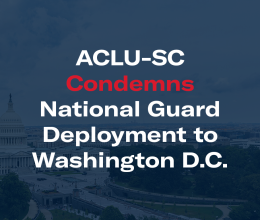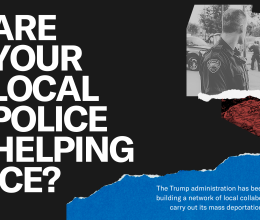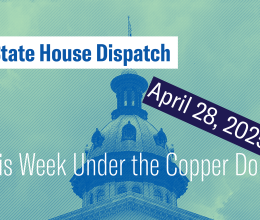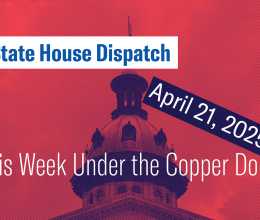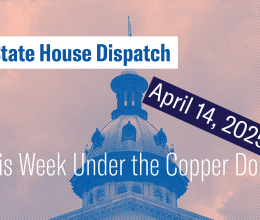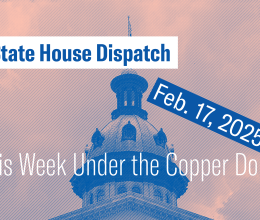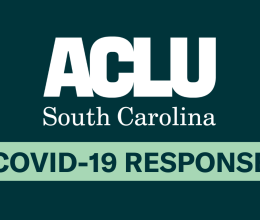
On April 9, we sent a letter calling on Governor McMaster to immediately mandate a prison reduction plan and protect incarcerated people from the perilous risks associated with COVID-19 in correctional settings. Despite the recommendations of public health experts and pleas from concerned advocates and loved ones of incarcerated people, Governor McMaster has continued to neglect his duty to care for people in custody -- including those who are most at risk of becoming critically ill or dying from COVID-19.
We're suing to prevent death by incarceration.
Along with our pro-bono partners at international law firm Arnold & Porter, we filed a federal lawsuit this evening against Governor Henry McMaster, South Carolina Department of Corrections Director Bryan Stirling, and members of the South Carolina Board of Pardons and Paroles. Protection and Advocacy for People with Disabilities, Inc. (P&A) also joined the lawsuit as a plaintiff on behalf of incarcerated people with disabilities.
We are asking the courts to grant immediate relief for incarcerated people who are at particular risk of serious harm or death from COVID-19, including those who:
- have serious underlying medical conditions,
- have developmental disabilities or mental conditions, or
- are 50 years of age or older.
Additionally, to enable social distancing and other preventative measures, we are seeking to further reduce the prison population through release of people who are:
- within six months of their anticipated release date,
- eligible for parole and disciplinary free for the past year, or
- in custody for technical violations of parole or probation.
Incarcerated people are housed in close quarters, are often in poor health, are unable to engage in social distancing practices recommended by the CDC, and thus are at heightened risk of becoming infected with and dying from COVID-19. Because of this severe threat and the potential for COVID-19 to rapidly spread throughout a correctional setting, public health experts have recommended the rapid release from custody of those who are most vulnerable.
COVID-19 arrived in a prison system already suffering from horrific conditions of confinement. For years, SCDC has been plagued by a chronic staffing shortage which created conditions that led to a deadly riot at Lee Correctional Institution in 2018. A 2019 report by the S.C. General Assembly Legislative Audit Council clearly states that SCDC is unequipped to maintain safe operations and deliver necessary medical care and programs to incarcerated people on an average day, much less during a deadly pandemic. SCDC Director Stirling, himself, has acknowledged that his agency “cannot hire [its] way out of” the state prison staffing shortage, meaning that unless there is a significant population reduction, SCDC will remain unable to provide safety and sufficient medical care to those in its custody.

